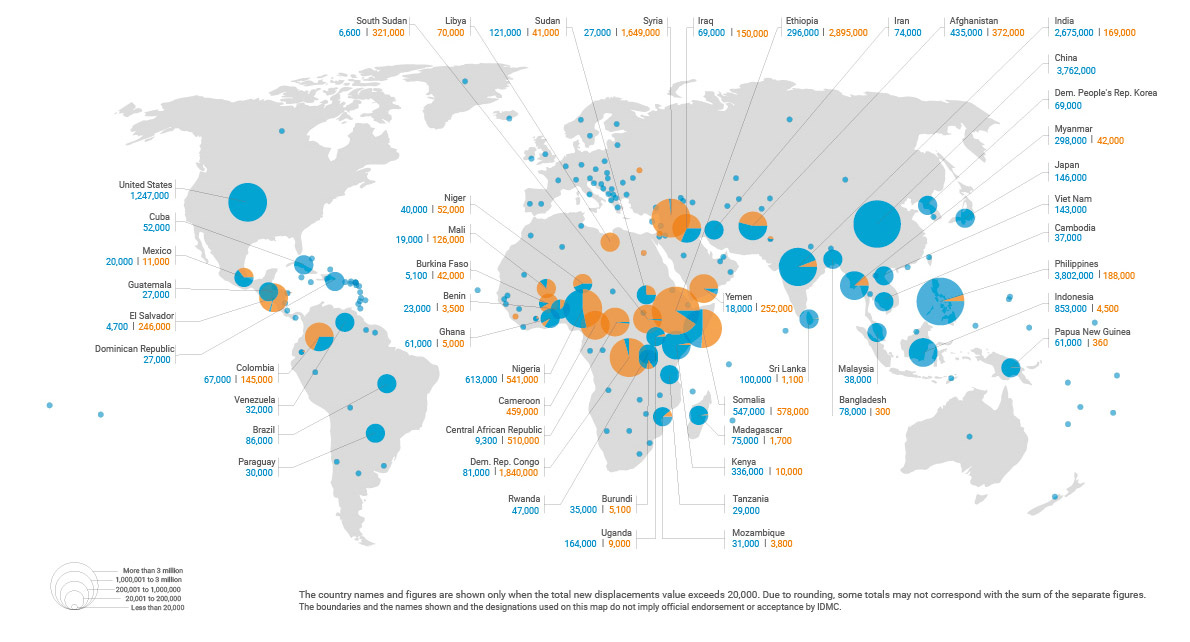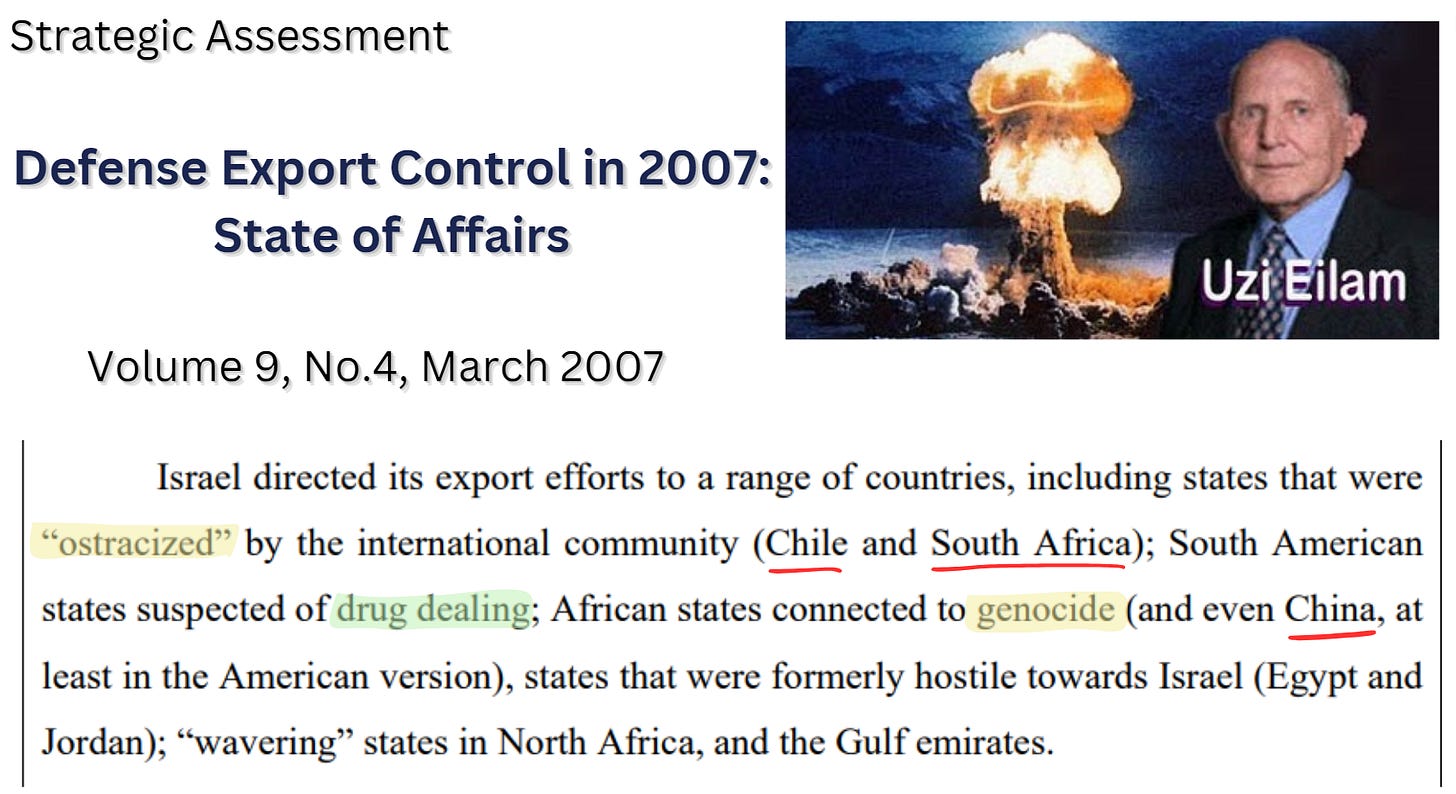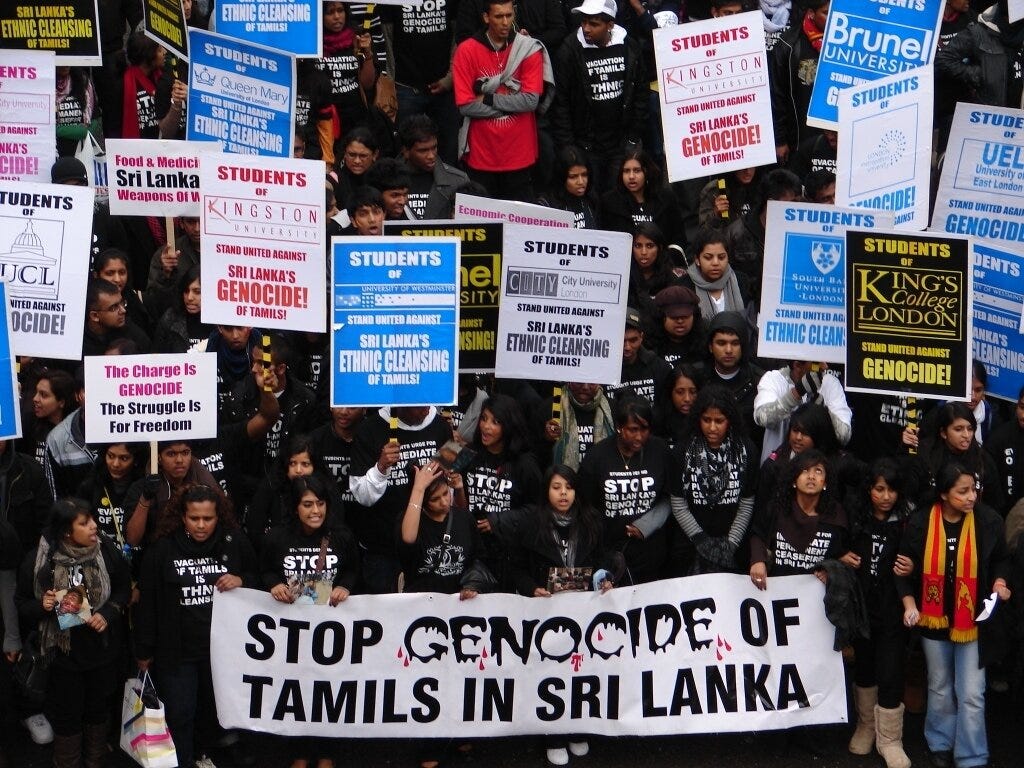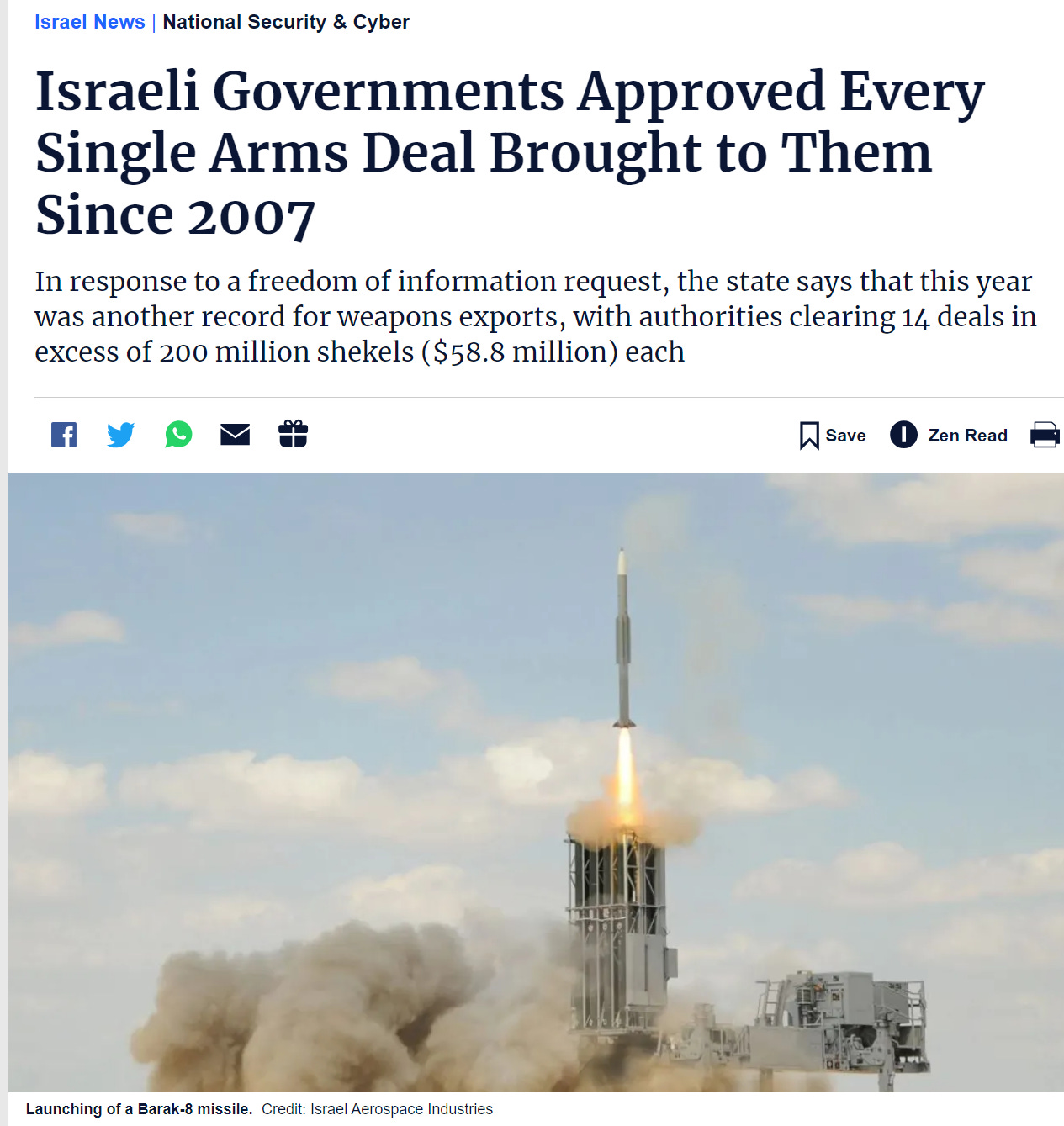The Border Industrial Complex
Israel and their Republican backers profit from selling border technology to the United States and Europe, while simultaneously causing the migrations crisis by arming autocrats around the world.
Please contact your local representatives to inform them of how politicians profit from the border industrial complex and caused the mass migration humanitarian crisis.
-D.C.
Sources:
What’s behind the influx of migrants crossing the U.S. southern border? | PBS NewsHour
Border Wall Construction: Potential Israeli Player (texasisrael.org)
Central American migration: Facts, FAQs, and how to help | World Vision
Why are Central American migrants coming to the U.S.?
Many factors cause people to uproot their families. The most common reasons among Central American migrants are food insecurity, political insecurity, violence, lack of economic opportunity, or some combination of these.
More Russian spies in Mexico than any other country: US defense official (mexiconewsdaily.com)
Russia has more spies in Mexico than in any other country, the US warns - The Yucatan Times
IDMC | GRID 2019 | Global Report on Internal Displacement 2019 (internal-displacement.org)
Number of internally displaced people hit record in 2022 – DW – 05/11/2023
Ten countries — Syria, Afghanistan, the Democratic Republic of Congo, Ukraine, Colombia, Ethiopia, Yemen, Nigeria, Somalia and Sudan — are home to nearly three-quarters of those who live in displacement. Several of them remained displaced because of unresolved conflicts.
There were 17 million displacements inside Ukraine, 8 million in Pakistan and 16.5 million in sub-Saharan Africa, with the Democratic Republic of Congo and Ethiopia seeing the most displacement on the African continent.
Global migration, by the numbers | World Economic Forum (weforum.org)
Conflict in countries including Syria, Yemen, the Central African Republic, the Democratic Republic of the Congo and South Sudan, as well as the kind of extreme violence that forced Rohingya to seek safety in Bangladesh, have led to the displacement of millions of people.
Although refugees and internally displaced persons make up a relatively small portion of the total number of migrants, they are often most in need of help.
Arming Dictators, Equipping Pariahs: Alarming Picture of Israel's Arms Sales - Israel News - Haaretz.com
The report quotes a 2007 article by Brig. Gen. (res.) Uzi Eilam. “A thick layer of fog has always shrouded the export of military equipment. Destinations considered pariah states by the international community, such as Chile in the days of Pinochet or South Africa during the apartheid years, were on Israel’s list of trade partners,” Eilam wrote.
Microsoft Word - Eilam_English_final_for site.doc (inss.org.il)
The report presents concrete evidence on Israel’s exports over the last two decades, with arms going to eight countries accused by international institutions of serious human rights violations: South Sudan, Myanmar, the Philippines, Cameroon, Azerbaijan, Sri Lanka, Mexico and the United Arab Emirates. In some of these cases, Israel denied that it exported arms to these countries at specifically mentioned times. In other case it refused to give details.
In its report, Amnesty relies on the research of other human rights groups, on documentation published in the media in those eight countries, and on information gathered by attorney Eitay Mack, who in recent years has battled to expose Israel’s arms deals with shady regimes. Amnesty cross-checks descriptions of exported weapons with human rights violations and war crimes by those countries. In its report, Amnesty says that some of these countries were under sanctions and a weapons-sales embargo, but Israel continued selling them arms.
According to the organization, “the law on monitoring in its current format is insufficient and has not managed to halt the export of weapons to Sri Lanka, which massacred many of its own citizens; to South Sudan, where the regime and army committed ethnic cleansing and aggravated crimes against humanity such as the mass rape of hundreds of women, men and girls; to Myanmar, where the army committed genocide and the chief of staff, who carried out the arms deal with Israel, is accused of these massacres and other crimes against humanity; and to the Philippines, where the regime and police executed 15,000 civilians without any charges or trials”…
Numerous reports over the last year show that the problem is not restricted to the sale of light weapons but might be exacerbated by the spread of cyberwarfare tools developed by Israel and what dark regimes can do with these. Even if it happens through a twisted chain of sub-contractors, the state can't play innocent. Therefore, it's worthwhile listening to Amnesty's criticism and suggestions for improvement.
New rivers of gold | Ap human geography, Global map, Britain (pinterest.com)
Dayan Says Israel is Selling Arms to Ethiopia, but is Not Sending Any Troops or Aircraft - Jewish Telegraphic Agency (jta.org)
Israeli Governments Approved Every Single Arms Deal Brought to Them Since 2007 - National Security & Cyber - Haaretz.com
However, Mack contends that this isn’t always the case: In many such deals even when the Defense Ministry is being used as a conduit, these transactions involve local intermediaries. In Myanmar, for example, it was recently revealed that a company involved in crime and corruption and whose CEO was arrested in Thailand for alleged drug trafficking and money laundering served as the intermediary and the “sole representative” of three Israeli defense exporters in the country…
In Israel, by comparison, exports are conducted in secret.
“The figures that have been revealed here are a reminder that supervision of Israeli defense exports is not only the fruit of decisions made by the Defense Ministry but are done with the full approval and knowledge of the governments of Israel,” said Mack.
“The fact that Israeli governments have never refused a Defense Ministry request to approve a large deal should arouse concerns and reinforces the need for public oversight of defense exports and their destinations,” he said.
The Harvard of anti-terrorism: how Israel's military-industrial complex feeds the global arms trade (theconversation.com)
As of 2021, Israeli arms sales had increased by more than 55% over the preceding two years, to a total of US$11.3 billion. Its more recent clients include India, Turkey, the United Arab Emirates and Azerbaijan. In each of these countries, Israeli arms have exacerbated existing conflicts. Indeed, Israel rarely meets a client with whom it will not do business. Its government has approved every defence deal brought to it since 2007…
Israel supplies this “border industrial complex” with, among other things, digital barriers, steel fences, observation towers, ground sensors, thermal imaging, virtual border-guard interview machines, and lie-detector machines powered by AI.
The size of the Frontex budget, and the inhuman equipment it furnishes, lays bare just how badly the multicultural project in Europe is struggling. The backlash against immigration has long been a feature of European Union politics, energised by the global financial crisis, and lethally sharpened after the influx of Syrian refugees in 2015. Ethno-nationalists, Brexiteers and other tinpot populists have ridden to power by stoking public fears of the outsider and championing an increasingly narrow vision of national identity and its approved expression.
Benjamin Netanyahu’s Israel, Loewenstein argues, has been at the forefront in articulating and embedding the policies and practices of this new ethno-nationalism. For a long time, Israel and its policies in the Occupied Territories looked like an outlier. The then US President Barack Obama, in one of his many spats with Netanyahu, argued that the arc of history was bending away from colonialism and racism, and that the Israelis would have to come to a settlement with the Palestinians, as in the 21st century it was no longer sustainable to occupy another land and oppress its people.
Experts believe Israel unlikely to drop lucrative arms sales to Azerbaijan | The Times of Israel
According to data from the Stockholm International Peace Research Institute (Sipri), over the past five years, Israel has been the top supplier of arms to Azerbaijan, with sales of more than $740 million, putting it ahead of Russia.
How Israel’s Supreme Court Rubber Stamps Arms Deals to Dictators - Opinion - Haaretz.com
And although much energy is devoted to keeping this fact from public view, we know it to be true. Project Pegasus, an international investigative journalism project that includes Haaretz journalists, for example, exposed the Israeli company NSO’s sale of powerful cyberweapons that are exported for use against journalists and human rights activists. In 2015, Haaretz published an investigative report showing how Israel had become a leading exporter of surveillance software, enabling dictators, a phenomenon that Harari himself has spoken out against.
There have also been reports in international media attesting that in the last 15 years, Israeli guns have been sold to South Sudan during its bloody civil war, Israeli attack ships were sold to Myanmar before, during and after the genocide of the Rohingya minority, and advanced Israeli suicide drones gave Azerbaijan their qualitative edge in the conflict in Nagorno Karabakh.
The list goes on, including Israeli spy technology sold to Bangladesh, a country known for its human rights abuses, the Israeli training of a private army that protects the president of Cameroon, and Israeli arms sold to the president of the Philippines, after the United States restricted its sales based on human rights violations by the police…
It has consistently consented to place gag orders on decisions relating to arms sales, and even puts gag orders on courtroom discussions, from petitions to stop weapons sales, as in the case of export to Myanmar during the genocide of the Rohingya, or petitions to merely publicize arms sales made 30 years ago during the genocide in Rwanda.
How migration became a weapon in a ‘hybrid war’ (ft.com)
Lukashenko’s very public orchestration of a humanitarian crisis — European officials have accused his regime of simplifying entry for Middle Eastern migrants into Belarus and then directing them towards the border — is perhaps the most blatant recent example of coercive diplomacy using displaced people as a weapon. Increasingly, that weapon is being aimed at the EU as a way of exploiting its deep political divisions and public fears over uncontrolled immigration. The phenomenon is driving a further hardening of attitudes within the union towards migration and asylum seekers, as member states seek new ways of strengthening their borders and deterring displaced people from heading to the EU. The goal, according to Marcin Przydacz, Poland’s deputy foreign minister, is “to check the resilience of our countries” by “shaking the emotions of public opinion”…
Governments are grappling for ways to respond to weaponised migration alongside other coercive tools aimed at social and political destabilisation, such as cyber attacks and disinformation, which have been refined into a sophisticated military doctrine of “hybrid war” by Moscow and copied by others. “The classic distinction between war and peace has been diminishing,” Josep Borrell, the EU’s foreign policy chief, said last month as he unveiled the EU’s new “strategic compass” or foreign policy strategy. “It is not black and white. The world is full of hybrid situations where we face intermediate dynamics of competition, intimidation and coercion. And what we are seeing today at the border of Poland and Belarus is a typical example of that.” Europe is hardly the only region where immigration is a sensitive issue. But the EU has a unique set of features that its adversaries such as Lukashenko can exploit…
Stage-managed ‘invasions’
Use of migrant flows as a tool of aggression or intimidation is neither new nor rare. Kelly Greenhill, a US academic and author of the book Weapons of Mass Migration, has documented at least 76 instances since the 1950s and concedes there are probably many more. Some are vast in scale. A crackdown by the Pakistani military in 1971 sent 10m Bengali refugees into India in part to pressure New Delhi into ceasing its support for the Bengali rebel movement. Fidel Castro permitted and then encouraged 125,000 Cubans to flee to the US in the Mariel boatlift of 1980, partly to extract political concessions from US president Jimmy Carter, who had initially welcomed the influx before it turned into a tide. Some coercers have been explicit about their motives. Attempting to play on racial tensions within Europe, Libyan leader Muammer Gaddafi in 2010 demanded €5bn a year to stop illegal African migration. “Tomorrow Europe might no longer be European, and even black, as there are millions who want to come in,” he said. Turkish president Recep Tayyip Erdogan has repeatedly threatened to flood the EU with some of the 4m refugees living in his country. Last year officials bussed thousands of them to Turkey’s land border with Greece, leading to tense clashes with Greek border guards.
Israel and Latin America | SpringerLink
During the last decade Latin America was undisputedly Israel’s largest market for arms, accounting for approximately 50 to 60 percent of its total military exports.1 According to the Stockholm International Peace Research Institute (SIPRI), one-third of Israel’s total arms sales of $1.2 billion in 1980 went to Argentina and El Salvador alone.2 Recently, Israeli arms to Asia and Africa have increased, partly as a by-product of Israel’s success in regaining some of its old friends, particularly in Africa. Nevertheless, Latin America continues to be a primary market,* accounting for one-third to one-half of Israel’s total arms sales.3 It is no coincidence that Israeli military sales literature continues to come out in two languages, English and Spanish.4
Mexico: reporters and activists hacked with NSO spyware despite assurances | Mexico | The Guardian
What to know about the investors behind NSO Group (axios.com)
Return on investment: Private equity firm Francisco Partners bought NSO in 2014. At one point, both Francisco and NSO had future Trump national security adviser Michael Flynn on their payrolls.
In 2017, Francisco held talks to sell a 40% stake to The Blackstone Group for around $400 million. But Blackstone got cold feet during advanced due diligence; formally bailing a couple of months after the first Mexico spying story was published.
Francisco, whose limited partner roster is littered with U.S. public pensions, steadfastly refused to comment on NSO. To this day, it has not explained what it did or didn't know.
The firm finally exited NSO in early 2019, selling it back to the company's founders and London-based private equity firm Novalpina, which pledged "a new model for public transparency."
Michael Flynn Worked With Foreign Cyberweapons Group That Sold Spyware Used Against Political Dissidents | HuffPost Latest News
Flynn received $40,280 last year as an advisory board member for OSY Technologies, an NSO Group offshoot based in Luxembourg, a favorite tax haven for major corporations. OSY Technologies is part of a corporate structure that runs from Israel, where NSO Group is located, through Luxembourg, the Cayman Islands, the British Virgin Islands, and the U.S.
Flynn also worked as a consultant last year for Francisco Partners, a U.S.-based private equity firm that owns NSO Group, but he did not disclose how much he was paid. At least two Francisco Partners executives have sat on OSY’s board.
Guess Who Came to Dinner With Flynn and Putin (nbcnews.com)
NBC News reviewed video and photos from a 2015 Moscow gala that Mike Flynn was paid $45,000 to attend to see who else was in the room.
Kushner reportedly told Flynn to contact Russians over anti-Israel UN resolution | The Times of Israel
US President Donald Trump’s son-in-law and Middle East peace envoy Jared Kushner directed then-adviser Michael Flynn to contact Russian officials in a bid to quash a UN Security Council resolution regarding Israeli settlements, according to reports in US media.
Earlier on Friday, Flynn pleaded guilty to lying to the FBI over his contacts with Russia, in a dramatic escalation of the probe into possible collusion between the president’s campaign team and Moscow.
'It's a free-for-all': how hi-tech spyware ends up in the hands of Mexico's cartels | Mexico | The Guardian
Exporting militarism: how Israeli companies market repression in Latin America | War Resisters' International (wri-irg.org)
Israeli military support for Latin American dictatorships has been enormous. the percentage of purchases of Israeli weapons during various dictatorships include:
Argentina (1976-1983) 95%
El Salvador (1972-1979) 92%
Honduras (1972-1981) 81%
Still today, the most repressive, most right-wing regimes and coup regimes in Latin America all rely on Israeli support; Honduras has received help since the beginning of the coup against President Zelaya, Bolsonaro’s government is looking for military and security cooperation with Israel, and Colombia’s president Uribe was one of the biggest buyers of Israeli weapons.
Many police forces and intelligence units in Latin America where trained by Israeli units like the Mossad (Israeli foreign intelligence force) and ‘private’ Israeli security companies. In Guatemala in 1982, the “Dos Erres” massacre was committed by soldiers trained by an Israeli company called ISDS, using weapons manufactured in Israel. ISDS is still operating in many countries around the world, including Brazil and Mexico…
Colombia has its own history of Israeli trainings. Yair Klein, is a former lieutenant in the Israeli army and founder of Spearhead Ltd, a private mercenary company. Through Spearhead Ltd, Klein trained the infamous AUC (Autodefensas Unidas de Colombia), a coalition of right-wing death squads. Klein has been convicted by a Colombian court but never extradited, and is living freely in Israel.
Cyber espionage is another top seller of Israel’s military industry. Pegasus is spy software used against human rights defenders, journalists and others by repressive regimes across the globe. Facebook recently banned another Israeli company called Archimedes, who - similar to Cambridge Analytica – specialise in manipulating elections. Archimedes have been highly active in Brazil, among other countries.
14 Israelis suspected of running child sex trafficking ring in Colombia | The Times of Israel
The children and teens were paid $63-126 for each “meeting” with Israeli tourists, and were forced to join a WhatsApp group called “Purim,” presumably named for the drunken celebrations that take place around the Jewish holiday, the Ynet news site reported…
The main suspect, Assi Ben-Mosh, was deported from Colombia in November 2017 on suspicion of drug offenses, soliciting children for prostitution and tax offenses…
The Israeli had allegedly been running a resort hotel near the northern Colombian town of Santa Marta, where he had set up a drug and sex crime ring. The Hotel Benjamin, in the fishing village of Taganga, was an attraction for many Israelis on their post-army travels but was unpopular with local residents due to the activities associated with it. His operations also extended into Ecuador, Brazil and Mexico, local media reported.
Ben-Mosh and his partners were suspected of drug-dealing, forcing minors into prostitution, and tax evasion, Hebrew media reported when the expulsion order against him was issued. Ben-Mosh had tried unsuccessfully to prevent his deportation from Columbia, including by applying to become a resident.
In August, Colombia issued an international arrest warrant for Ben-Mosh on suspicion of involvement in a child sex trafficking ring. Authorities in Bogota suspect he was involved remotely in a suspected sex trafficking ring that they broke up in raids, Colombian media reports said at the time.
Police in Colombia arrested 18 people in a raid on Hotel Benjamin hostel in Cartagena in July. The suspects are accused of running a sex ring, recruiting young girls from Colombia and Venezuela and forcing them to work as sex slaves. Reuters reported that more than 250 girls between 14- and 17-years-old were forced to have sex with locals and tourists.
When Israeli Ministers Laugh at Sex Trafficking - Opinion - Haaretz.com
Raped, abused, exploited: Ukrainian women seeking refuge in Israel find no haven | The Times of Israel
Report: Human Traffickers Not Being Prosecuted in Israel - Israel News - Haaretz.com
Thousands of slaves in Israel, global study finds | The Times of Israel
The Israeli Connection: Who Israel Arms and Why by Beit-Hallahmi, Benjamin - Internet Archive
Vladimir Putin and Benjamin Netanyahu
Russia’s Role in the Migrant Crisis
Why Sadat packed off the Russians - The New York Times (nytimes.com)
The crucial reason for the Egyptian ‐ Soviet estrangement was the Russian refusal to provide Egypt with offensive weapons. The key to Egypt's conflict with Israel is not ground forces, as huge as the Egyptians have made theirs with Soviet help, but air power. There, the balance Is still overwhelmingly in Israel's favor, and the Russians, in effect, refused to alter it for fear of an eventual confrontation with the United States.
True, the Russians provided Egypt with the most immense air‐defense system outside the Soviet bloc, composed of SAM‐2 and SAM‐3 missiles, but the system was essentially intended to protect the Egyptian heartland from a surprise Israeli attack. Despite intense Egyptian pressure, the Russians steadfastly declined to furnish their client with the offensive missiles or bombers that could strike Tel Aviv. They did give the Egyptians a small number of TU‐16 Badgers, but even these would be hard put to penetrate Israel's air‐defense system because they are slow, subsonic bombers that each carry less than half the bomb load of a single Israeli Phantom fighter‐bomber.
Putin to receive 'Friends of Zion Award' in Jerusalem - Israel News - The Jerusalem Post (jpost.com)
Russia Positioning Itself in Libya to Unleash Migrant Crisis Into Europe (usnews.com)
"Russia is following a familiar script, fueling conflict and cynically seeking to buy support by providing arms and military assistance, often using private military contractors, such as the Wagner Group, as proxies," the spokesperson says. "The Kremlin mistakenly believes using proxies provides plausible deniability, but nobody is fooled."
How the Kremlin Manipulates Europe’s Refugee Crisis | Observer
Cui bono? is a key question that’s been asked by more than few Europe-watchers in recent months as migrants have helped shift EU politics decisively to the right. It’s difficult to avoid noticing that many of the far-right parties reaping the whirlwind now across the EU have positive views of Vladimir Putin’s Russia. The EU’s rising right admires the Kremlin for its unapologetic emphasis on traditional values, state sovereignty and zero tolerance for jihadism. Anti-immigrant rallies in Germany have featured protestors brandishing Russian flags prominently, as well as German ones.
This extends beyond mere sympathy. France’s FN has accepted millions of dollars in funding from the Kremlin, while Germany’s AfD seems to have benefitted from Russian largesse as well. It’s therefore not surprising that the leaders of those parties have warm, praising things to say about Mr. Putin and his regime, viewing Russia as a bulwark of conservatism and an ally against migrant invasion.
Secret Russian funding for Europe’s far-right isn’t entirely new (and it should be stated that Russian intelligence also provides clandestine support to certain left-wing parties in the EU too, a Cold War legacy) but it’s taken on real importance now that the FN and the AfD may finally have a shot at governing thanks to political ferment caused by the refugee crisis. Friends of Russia, only recently considered politically marginal, matter now in several EU states, including key ones like France and Germany…
t’s undeniably true that Syria, a Russian client state, has been perfectly happy to export its huge refugee problem to Europe, while Mr. Putin’s military intervention in that bloody civil war last year has only increased the flows of desperate Syrian refugees seeking sanctuary in the West.
Russia’s links to European conservatives must be examined | openDemocracy
Russian Sailors Jailed in Greece for 400 Years for Trafficking Migrants – Reports - The Moscow Times
A Greek court found the two Russian sailors guilty of organizing illegal migration, said Melnikov, the vice president of the International Human Rights Defense Committee’s Russian branch.
The sailors were detained in November 2019 after hitting a storm and making a mayday call. They are among 14 Russian sailors detained in Greece that month, according to Interfax.
E.U. Suspects Russian Agenda in Migrants’ Shifting Arctic Route - The New York Times (nytimes.com)
KANDALAKSHA, Russia — So many decrepit Soviet-era cars carried migrants into Europe from this frozen Russian town in recent months that border officials in Finland, who confiscate the rust-bucket vehicles as soon as they cross the frontier, watched in dismay as their parking lot turned into a scrapyard…
It has sent alarm bells ringing in Helsinki, Finland’s capital far to the south, and in Brussels, where European Union leaders, at recent crisis meetings on migration, discussed the strange and ever-shifting Arctic route through Russia.
The intrigue flows from a growing suspicion in the West that Russia is stoking and exploiting Europe’s migrant crisis to extract concessions, or perhaps crack the European unity over economic sanctions imposed against Moscow for its actions in Ukraine. Only one of the European Union’s 28 member states needs to break ranks for a regime of credit and other restrictions to collapse.
“Unfortunately, this looks like a political demonstration by Russia,” said Ilkka Kanerva, Finland’s former foreign minister and now the chairman of its parliamentary Defense Committee. “They are very skillful at sending signals. They want to show that Finland should be very careful when it makes its own decisions on things like military exercises, our partnership with NATO and European Union sanctions” against Russia.























































